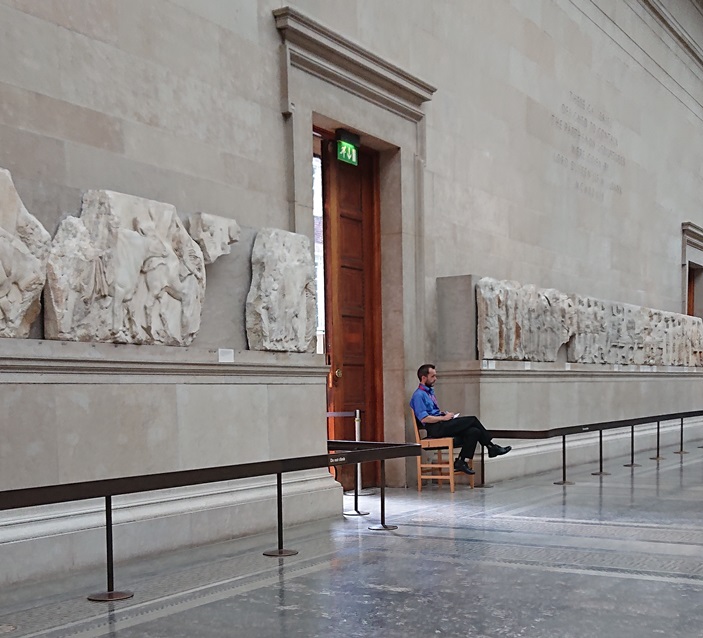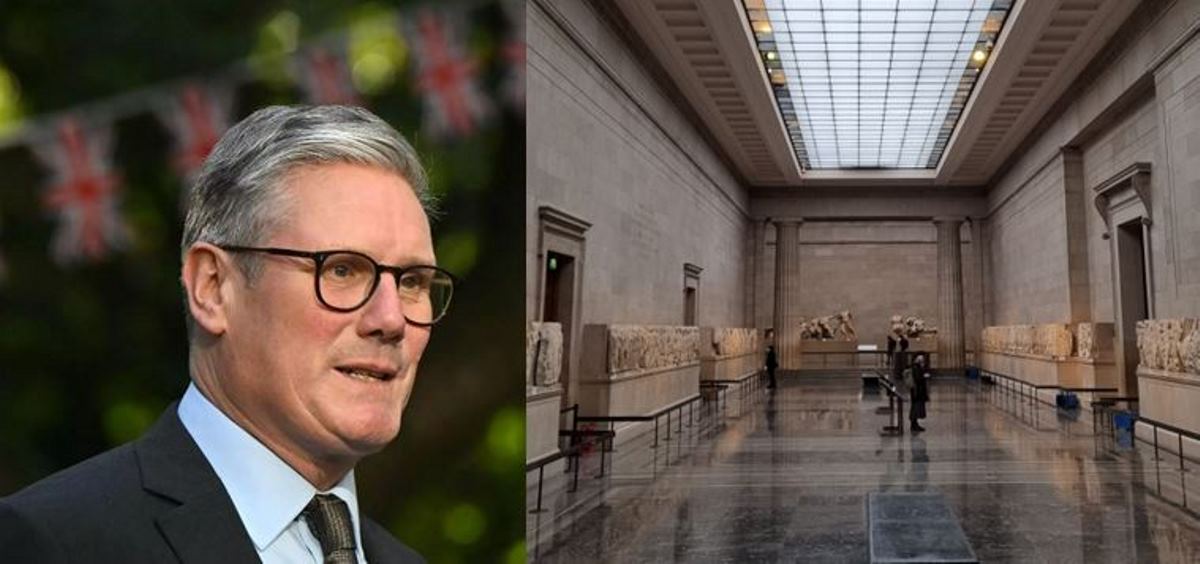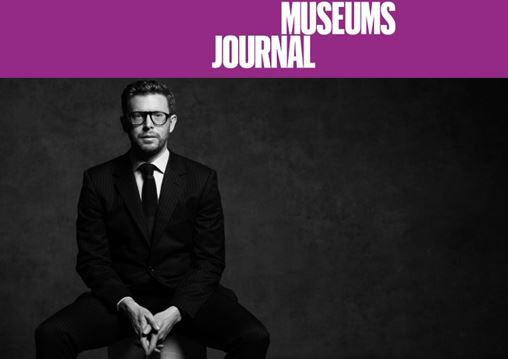Press release
from the British Committee for the Reunification of the Parthenon Marbles
This Monday 4th September, the Greek Minister of Culture George Voulgarakis, flies to Germany to accept, from the University of Heidelberg, a small piece of marble, only 10 cms. long, with a man's foot exquisitely carved in relief. It comes from a slab of the North Frieze of the Parthenon and makes an exact join with the rest of the slab in Athens. It is the first fragment from the Parthenon sculptures to return to Greece since, some 200 years ago, large parts of them were detached from the building by collectors from northern Europe. Lord Elgin, the British Ambassador to the Ottoman Empire which then ruled Greece is by far the best known of these, because of the size of his share, later to become the 'Elgin Marbles' in the British Museum.
The decision of Heidelberg to send this small piece back is important as another landmark in the new process of international cultural exchange and cooperation, between museums and even between governments, which has begun to sweep the world. In this case, the decision was taken not by politicians, but by academics who had carefully weighed up the artistic merits of the case. Heidelberg will receive, in return, the head of a small statue from the collection of a museum in Greece.
It was important enough, too, for the British Museum to have tried (too late) to persuade the University to go back on its undertaking to return the piece. They could feel the symbolic impact of this act, as no doubt could those other museums in France, Italy, Denmark, Austria and elsewhere in Germany who also hold larger or small pieces of the Marbles, acquired in the same period. Some of these have indicated that they too would return their fragments if the Elgin Marbles were to be reunited with their Athens counterparts, or have even taken initial steps to bring this about.
Only a few days before, two other carved reliefs which had left Greece more recently - in one case, as late as the 1990s - had been returned by the J. Paul Getty Museum in California, after they had been shown to be stolen goods. The case was different but, once again, the return came about through amicable consensus. The lesson for all holders of contested goods, public or private, is that friendly bilateral negotiation, in which moral and artistic as well as legal factors play a part, is apt to lead to a happier outcome than legalistic confrontation.





Comments powered by CComment